Policy reforms bear fruit: Economy responds positively to Government measures
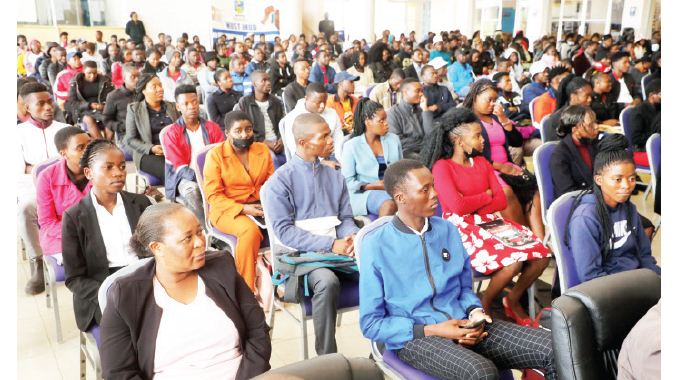
Nqobile Bhebhe, Senior Business Reporter
FINANCE and Economic Development Minister, Professor Mthuli Ncube says the country’s economy is responding positively to Government policy reform measures as evidenced by the accelerated growth in output by major productive sectors.
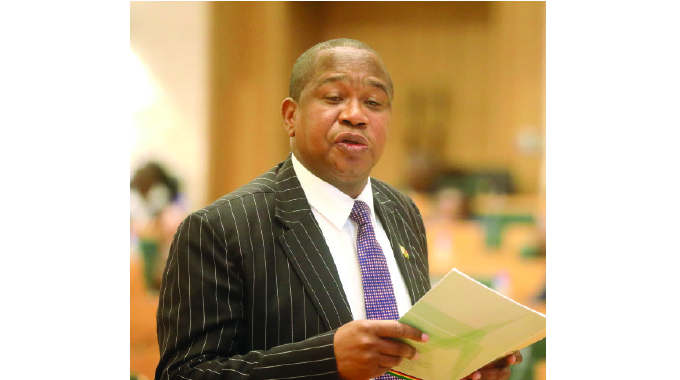
Professor Mthuli Ncube
As a result, Zimbabwe’s economy under the Second Republic led by President Mnangagwa is undergoing an unprecedented transformation that has not been witnessed in the last 30 years, said the minister. The transformative milestones are being aided by a proactive comprehensive economic reform drive, which is focused on transforming Zimbabwe into an upper middle-income economy status by 2030.
Since coming into power in 2017, President Mnangagwa has pledged to spearhead a robust economic transition through enhanced ease of doing business for local and foreign investors, as well as fostering export led-growth in order to create massive employment.
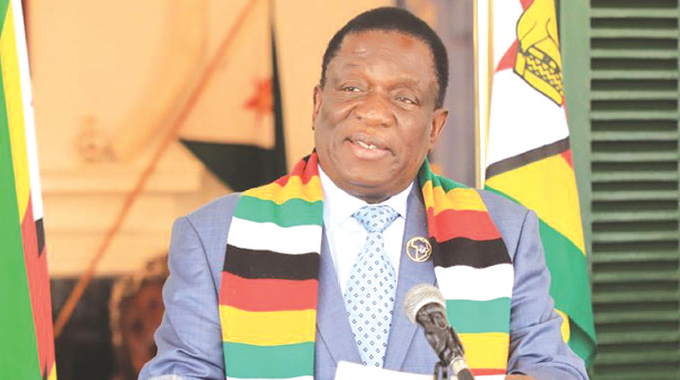
President Mnangagwa
However, the journey towards this turnaround has not been easy or smooth, said Prof Ncube, who noted the adverse impact of unforeseen domestic and exogenous macro-economic hurdles.
Despite these, he said Zimbabwe’s economy has exhibited solid resilience with a healthy current account balance and adequate fiscal space to champion a range of domestic infrastructural development projects.
Prof Ncube said this during a public lecture at the National University of Science and Technology (NUST) in Bulawayo yesterday, which was also attended by students from Lupane State University, Zimbabwe School of Mines, Bulawayo Polytechnic and Hillside Teachers College.
In his presentation titled: “Accelerating Economic Transformation,” the finance minister chronicled milestones that have been attained under the National Development Strategy (NDS-1) and how these lead towards attainment of Vision 2030

National Development Strategy 1 (NDS1)
“Zimbabwe’s economy is undergoing unprecedented economic transformation, which we have not seen in the last 30 years. However, the road is not smooth, attributable to both domestic and exogenous factors,” he said.
“We are on a long march towards achieving Vision 2030. His Excellency, the President of Zimbabwe has set the country’s vision that reflects the collective aspirations and determination of the people of Zimbabwe towards a prosperous and empowered upper middle-income society by 2030. We can do it, we will do it.”
While the global economy is in a slowdown mode in the face of headwinds such as the ongoing Russian and Ukraine tensions and Covid-19 that disrupted global supply chains, Prof said the resultant rise in inflation is a serious issue to world economies, including Zimbabwe.
“We’re seeing interest rates begin to quicken up because inflation is also picking up globally at a 40-year high,” he said.
Amid the continued strain that is being weighed down by the tightening of global financial conditions, Prof Ncube said growth in Sub-Saharan Africa is expected to recover slightly from 3,7 percent initially projected for 2023 to 3,8 percent and to further improve up to 4,1 percent in 2024. Despite subdued global outlook, he said the domestic economy continues to grow, albeit at a slower rate when compared to 2021 on account of global disturbances and other adverse domestic factors.

Minister Professor Mthuli Ncube
“Going back to 2017, we saw a growth of 4,7 percent, a dip in 2019 because of the drought and a further drop in 2020 due to Covid-19, which was -7,8 percent, and then a sharp recovery in 2021 registering a growth of 8,5 percent,” he said.
The minister said gross domestic product (GDP) growth for 2023 is estimated at 3,8 percent driven by higher growth expected from mining, accommodation, and construction sectors.
He said inflation that has been on the rise during the first half of the year 2022 has since been reversed following tight fiscal and monetary measures instituted by the Government and the monetary authorities.
“Resultantly, month-on-month inflation declined from 30,7 percent in July to 1,1 percent in January 2023, whilst annual inflation also fell from 285 percent in August 2022 to 229,8 percent in January 2023,” said Prof Ncube.
Government is aware that currency volatility feeds into inflation hence several measures, which are bearing dividend have been introduced, he added.
In order to stabilize the economy, the Government further tightened monetary policy, containment of money supply growth, introduction of gold coins to mop up further liquidity, and review Government contracts and procurement processes.
“We are making sure that on Government contractors there is very little forward-pricing or overpricing. We have instituted what we call the value for money process to make sure there is no overpricing,” said the minister.
“We remain tight on fiscal management and we run a quasi-cash budget system, which means we spend what we want to collect from citizens and some borrowing. We don’t over borrow and our domestic debt relative to GDP remains low and because of our right fiscal policy we are ending up the year with a balanced budget.”
Prof Ncube said the current account balance improved to an estimated surplus of US$305 million in 2022, driven by strong secondary income inflows coupled with merchandise exports growing at a faster pace compared to imports.
Cumulative exports increased by 16,5 percent to US$7,4 billion during the year 2022 compared to US$6,4 billion in 2021 mainly driven by merchandise exports.

Merchandise imports increased by 14,8 percent to US$8,7 billion in 2022, up from US$7,5 billion in 2021, driven by increases in fuel, machinery, and raw material imports. Higher fuel, edible oils, and fertilizer prices on account of elevated geopolitical tensions.
Rising diaspora remittances’ inflows have also been a game changer.
“These inflows also reflect increased confidence in the banking sector as opposed to prior years wherein diasporans opted to use informal ways of sending remittances into the country,” said Prof Ncube
He added that preliminary revenue collections to December 2022 amounted to ZWL$2,04 trillion, against a target of ZWL$1,59 trillion. Tax and non-tax revenue collections amounted to ZWL$1,96 trillion and ZWL$77,4 billion, respectively.
The minister, however, said the increase in total Public and Publicly Guaranteed debt to US$17,6 billion as at end of September 2022 up from US$17,2 billion in 2021, was attributed to new disbursements for ongoing projects, and the accumulation of penalties.
“Government’s role is limited to the provision of the necessary environment for a private-sector driven economy. In all this, we do not underestimate the importance of students and academics in general. Academic institutions play an important role in innovation, research, and new ideas critical for economic transformation and development,” said Prof Ncube.
Follow on Twitter @nqobilebhebhe

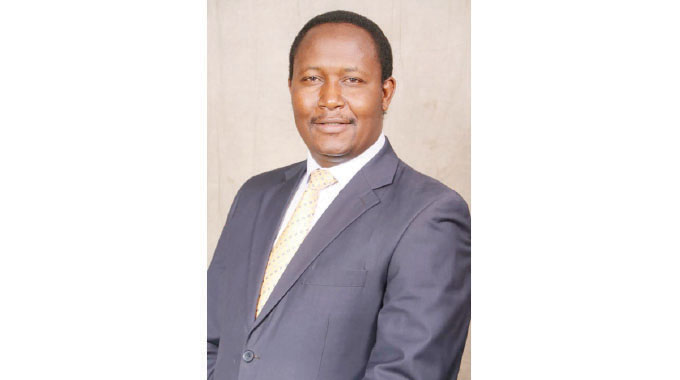



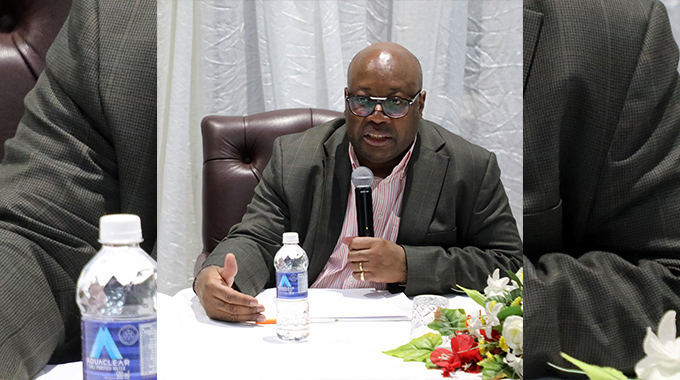





Comments